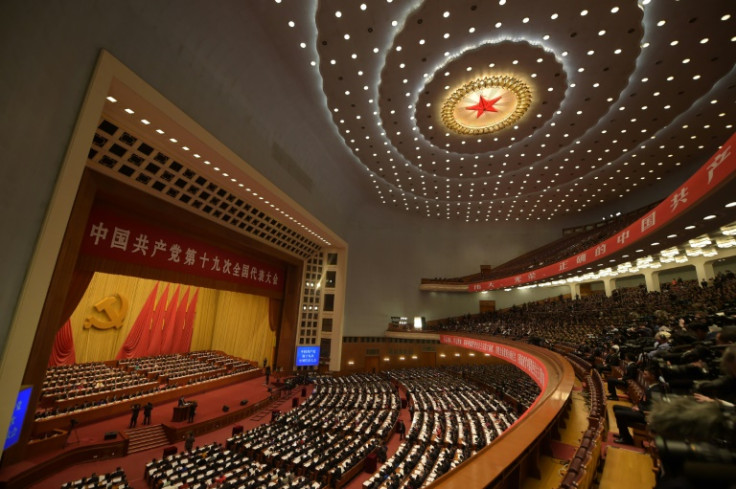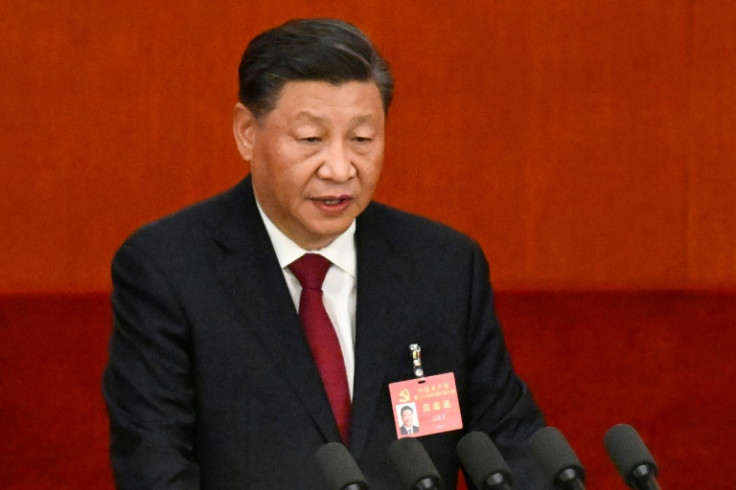China's Overzealous Control Over Hong Kong Has Cost Beijing Its 'Peaceful' Taiwan Unification Pitch
KEY POINTS
- Taiwan rejected China's "one country, two systems" policy for reunification
- Taipei willing to work with Beijing provided there is "rationality, equality and mutual respect"
- Beijing strives for "peaceful reunification" while refusing to renounce the possibility of using force
Self-ruled Taiwan once again rejected China's reiteration to achieve the reunification of the island democracy with the communist mainland, clearly not like the one applied to Hong Kong under the "one country, two systems" policy. Taipei instead called upon Beijing to carry out reforms to its political system and build a free and democratic civil society.
Addressing more than 2,200 delegates assembled for the 20th party congress in the Great Hall of the People in Beijing, Chinese President Xi Jinping said that Beijing would do its utmost to achieve peaceful reunification with Taiwan, but would not rule out the use of force to bring the island under its control.
"Resolving the Taiwan question is a matter for the Chinese, a matter that must be resolved by the Chinese. We will continue to strive for peaceful reunification with the greatest sincerity and the utmost effort, but we will never promise to renounce the use of force, and we reserve the option of taking all measures necessary," Xi said.

However, with the crackdown on pro-democracy protests in Hong Kong and its excessive controls, China has squandered away its opportunity to convince Taiwan that its "one country, two systems" policy is a workable solution for peaceful reunification.
Responding to the Chinese leader's assertions on reunification, Taiwan's Presidential Office spokesperson Xavier Chang stressed the island's stance on protecting its sovereignty, democracy and freedom.
Taiwan is willing to work with Beijing to find a mutually agreeable arrangement for upholding peace and stability in the Taiwan Strait, provided there is "rationality, equality and mutual respect," Chang said.
But the arrangement is clearly not what has been applied to Hong Kong under the "one country, two systems" policy, the spokesperson added.
Meanwhile, Taiwan's Mainland Affairs Council in a statement said that they will never accept Beijing's one-China principle. The council called on the communist party to carry out reforms of its political system and build a free and democratic civil society, urging it to "follow the international order and handle cross-strait relations with a new way of thinking."
Despite Western criticism, and China's claim that there is no change in its "one country, two systems" formula of governance, Beijing has been effectively chipping away at Hong Kong's freedoms in the name of maintaining order.
Referring to the crackdown on pro-democracy protests in Hong Kong, President Xi Jinping said in his Sunday address that "order has been restored," providing ample indication that Beijing was willing to ditch its international commitments to achieve its strategic and political agenda.
The late Chinese leader Deng Xiaoping had originally proposed the "one country, two systems" policy in 1979 in an attempt to entice Taiwan to reunify with the Communist mainland. China regards the island as a renegade province to be reunified, by force if necessary.
Under the policy, Beijing offered to allow Taipei to keep its economic and social systems, government, and even military in return for acknowledging that it was part of the People's Republic.
Although Taiwan rejected the proposal, the idea resurfaced when Beijing started talks with Britain and Portugal for the eventual transfer of Hong Kong and Macau.
However, in recent years, there has been a growing outcry from Hong Kong's pro-democracy civil society against Beijing's attempts to erode the city's autonomy. In 2019, China proposed an extradition bill allowing suspects in Hong Kong to be sent for trial to the mainland.
Anger over the bill erupted into some of the largest protests Hong Kong had ever seen, turning into a broader anti-China and pro-democracy movement.
Following the protests, in 2020, China introduced a wide-ranging new National Security Law (NSL) for Hong Kong, making it easier to prosecute protesters and further reducing the city's autonomy. Since the law came into force, hundreds of pro-democracy protestors, activists and opposition lawmakers have been arrested.

© Copyright IBTimes 2025. All rights reserved.





















